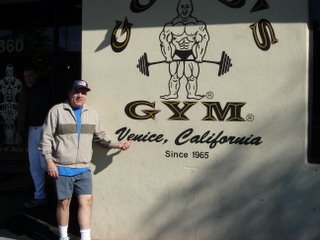 On July 12, 1980 I bought a book that deeply influenced my life.
On July 12, 1980 I bought a book that deeply influenced my life.
Sad to say, with as many books as I buy, very few move me. Very few are hypnotic. In my 52 years, maybe two dozen or so have awakened something new in me. That doesn’t mean I don’t enjoy reading the books; it just means few of them alter the course of my life.
The one I read in 1980 is still around today. At first glance you’ll wonder what it has to do with James Caan or me or much else in the “real” world. But stay with me on this.
The book is Improv: Improvisation and the Theatre. It’s by Keith Johnstone. (I told you it wouldn’t make immediate sense to you.)
I was in the theatre back then — I wrote a one-act play that won an award and production back in 1979 (see PS below) — so reading the book wasn’t out of the norm for me, but I never expected the book Improv to open my eyes to life, as well.

One of the most powerful concepts in the book is the idea of status. There’s an entire chapter on it in Johnstone’s work.
In short, in every situation there is an unseen and unconscious play of status.
One person is perceived as higher and the other is perceived as lower. This happens virtually all the time. When you start to become aware of it, you’ll see it everywhere.
You can also use this to your advantage. When you intentionally lower your status, others will like you, feel comfortable around you, and want to spend more time with you. They feel safe. They feel important. They feel respected.
I know a famous speaker who confided in me that this secret method was how he won friends and became so popular. He always made himself appear lower in status.

As you know by now, I got to meet superstar actor James Caan the other day in LA and spend some time with him.
I love Caan as an actor. He’s been in such classic movies as Rollerball and of course The Godfather. But I really admired him as a person when we were in his trailer on the studio lot of the Las Vegas TV show and he asked my opinion about a new reality-TV show he’s currently involved in.
He asked…and he listened.
And on top of that, he did some brainstorming with me, showing that my opinion counted.
I disagreed with him about something he was doing to market the reality show, and he didn’t argue. He heard me out. He told me his view. I told him mine. We had a discussion.
When you consider that I’m a nobody in his world and he’s a diety in the movie and television world, the fact that we had any discussion is amazing.
In short, Caan lowered his status to let little ole me feel more at home in his neon-lit world. This was a major feat, and something I will never forget.
I have no idea if James Caan did this intentionally or not. I like to think he really wanted my opinion. It doesn’t matter. It made for one of those experiences you write home about (or write on your blog about).
The psychological principle of status changed my life in 1980.
It can change yours today.
Listen and learn.
Ao Akua,
Joe
www.mrfire.com
PS – Jimmy Caan also did one other thing that impressed me. Some day I may write about it, too.
PPS — The prize-winning play I wrote and saw produced back in 1979 (mentioned above) was a respectful comedy about eccentric author and playwright William Saroyan. I to this day regret never meeting him. I was actually on my way to California to see him when I grew roots in Texas and paused my travels. He deeply influenced my writing style. He was truly a daring young man in the literary world. I miss him. http://www.kirjasto.sci.fi/saroyan.htm

Leave A Comment